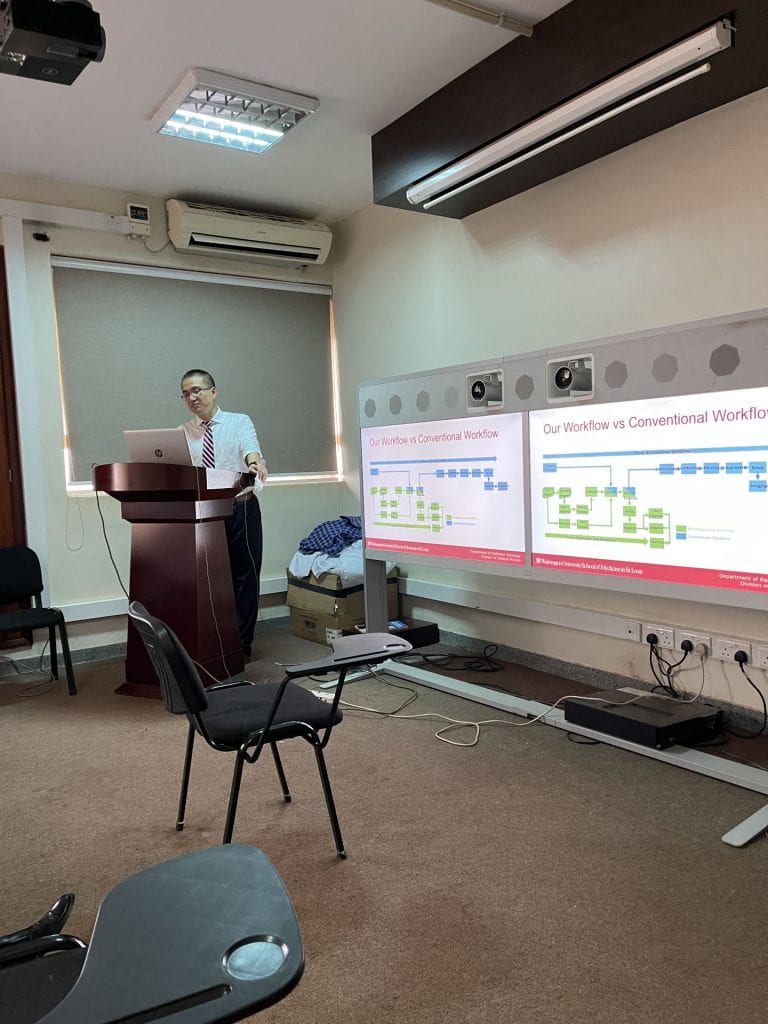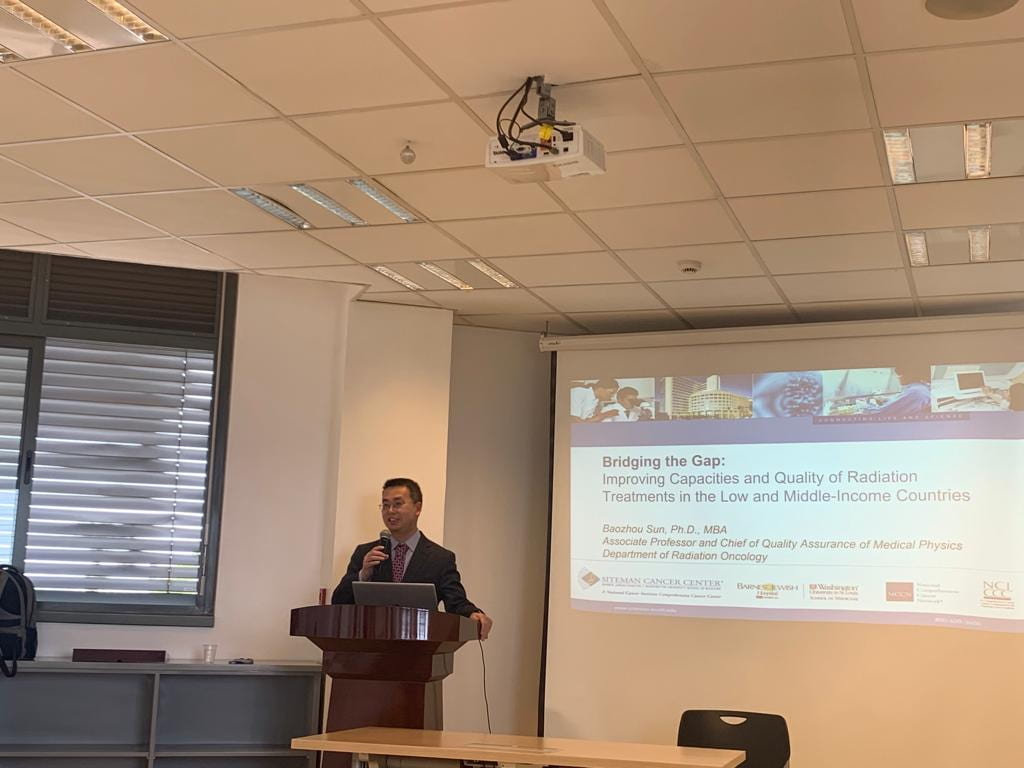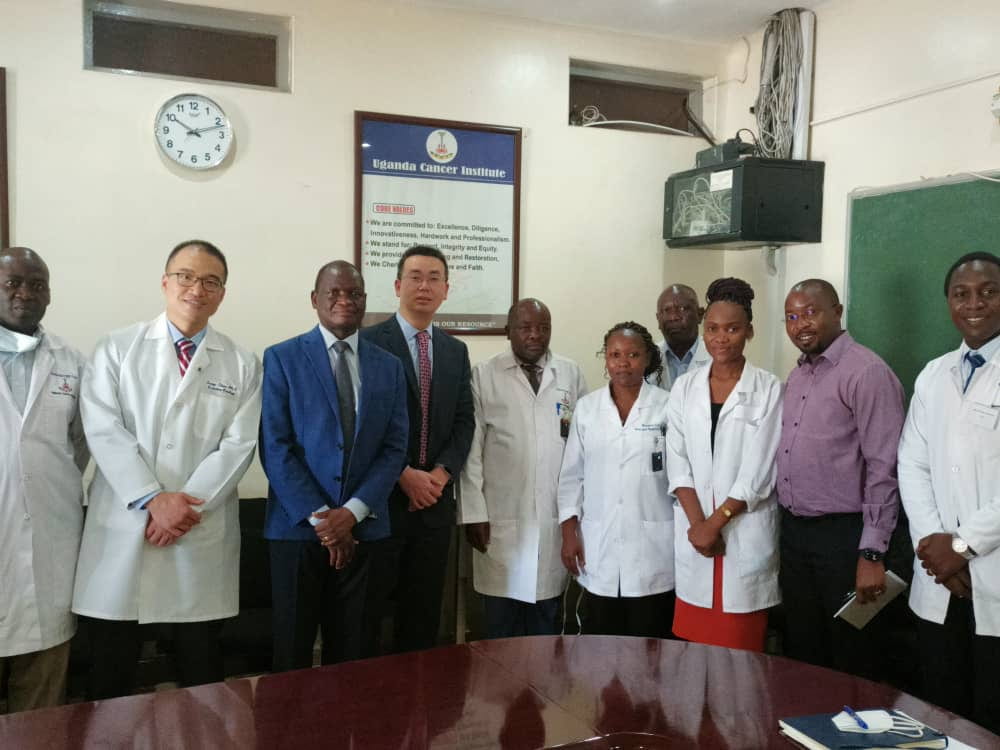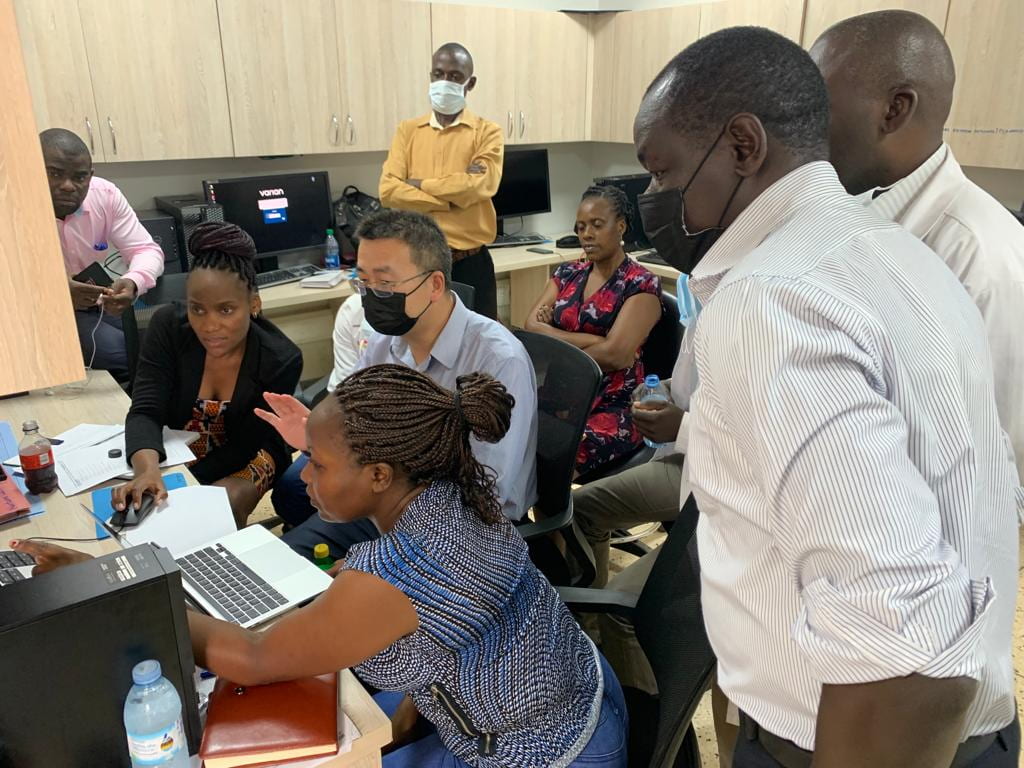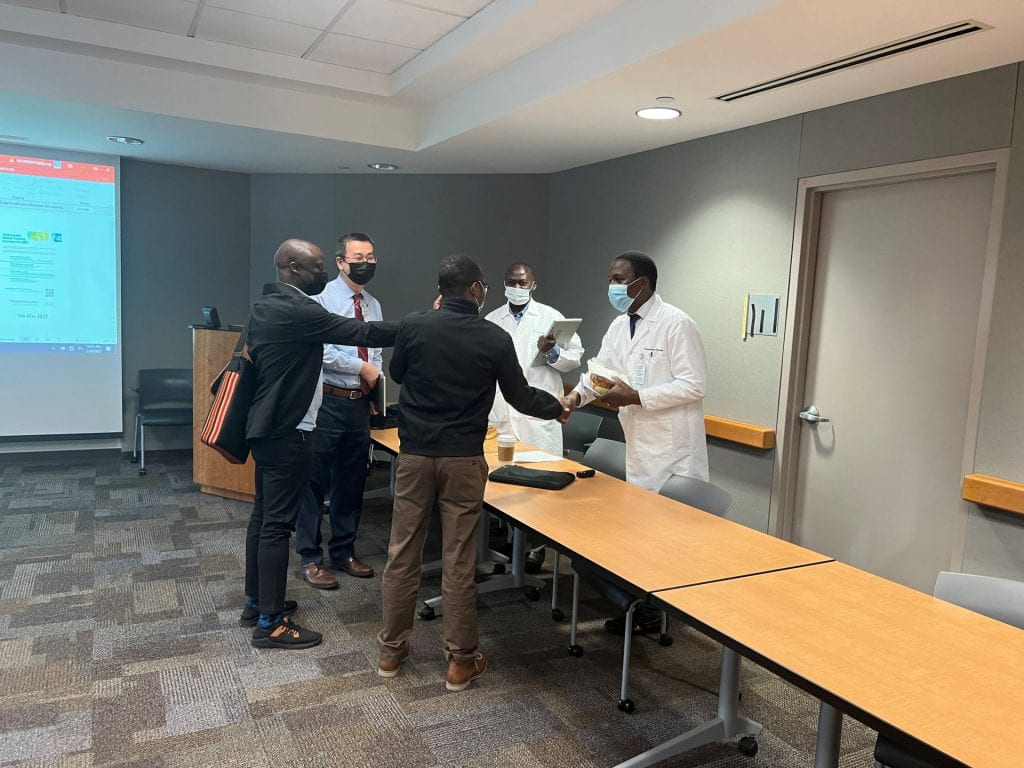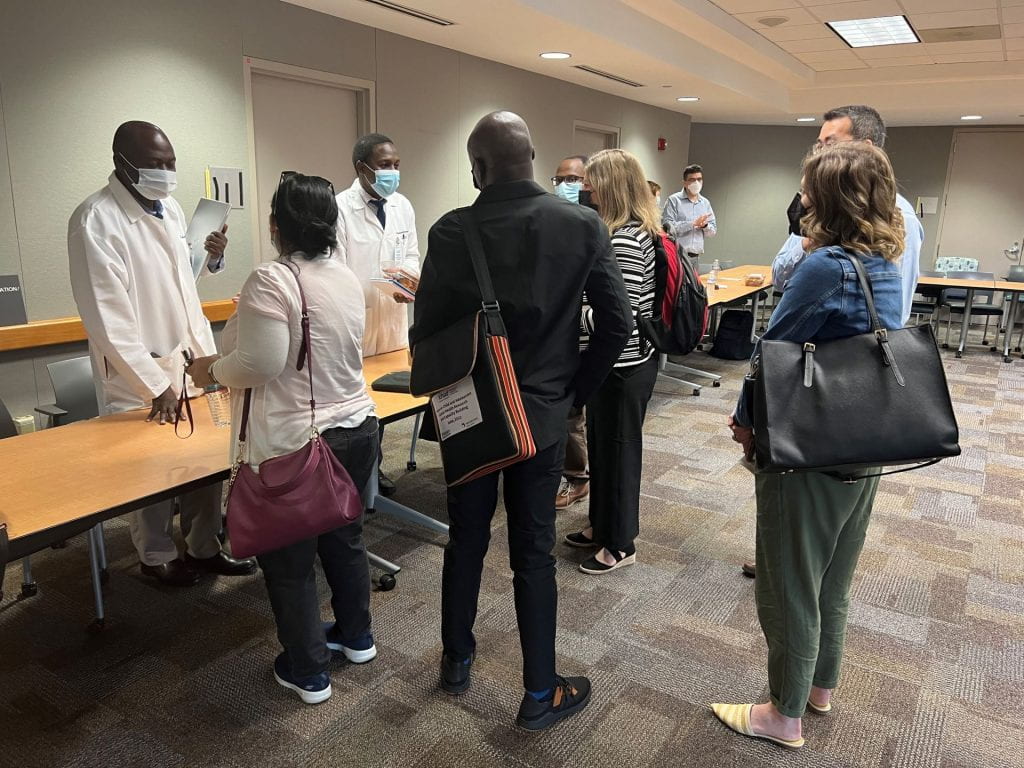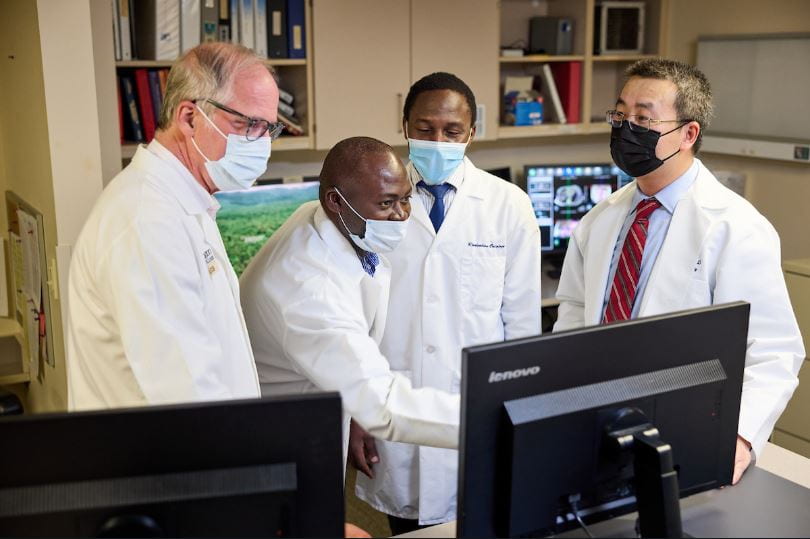Through a collaboration between Washington University’s Global Health Center and the Brown School, with support from a seed grant from Washington University’s McDonnell International Scholars Academy, Baozhou Sun, PhD, associate professor of radiation oncology, has implemented a way to help train physicists, radiation oncologists and dosimetrists in low-income countries in the safe and efficient use of radiotherapy technologies.
It is predicted that there will be 24 million new cancer cases per year in 2030 globally, with 75% of cancer deaths in the developing world. Radiotherapy is an effective and essential therapy for cancer treatment. However, access to advanced radiotherapy in low-middle-income-countries (LMICs) has been limited due to a lack of expertise/training, expensive equipment and software.
Sun’s original goal was to work with the Uganda Cancer Institute, a partner Institute of Makerere University Medical School (UCI/MU), to adapt a highly-efficient and cost-effective approach for linear accelerator (Linac) deployment and quality assurance processes to support safe and efficient use of radiotherapy technologies in Uganda. It has been so successful, though, that he and the Global Health Center have quickly expanded the project to include cancer centers in Mongolia and Guatemala.
Various members of the medical physics team and physicians in the Department of Radiation Oncology have led zoom training sessions focusing on different cancer sites, giving physicists and physicians around the world better insight as to how they can treat cancer patients using IMRT with what they have available.
“I appreciate you a lot for the effort that you all put in to organize the training. Our needs were fulfilled through these IMRT training sessions and our knowledge improved a lot and with your training made us ready to start IMRT in Mongolia. We had a lot of training from abroad but never like this. I feel like your team teaches us from the bottom of their heart. Please convey our appreciation to your team.”
Enkhtsetseg Vanchinbazar, chief medical physicist in the Department of Radiation Oncology, National Cancer Center of Mongolia
Sun hopes this collaborative project will improve radiotherapy quality and safety, improve efficiency and reduce the overall cost of radiotherapy in these low-income countries.
Read more about this collaboration at the Global Health Center.
UPDATE | April 20, 2022:
Baozhou Sun, PhD and Tianyu Zhao, PhD, both Associate Professors of Radiation Oncology, just returned from Uganda, where they spent time with the Radiation Oncology department at the Uganda Cancer Institute. Sun and Zhao both gave talks to the group and worked with them to implement first-ever IMRT treatments for patients in Uganda.
UPDATE | May 27, 2022:
We were thrilled to welcome Solomon Kibudde, MMed, and Awusi Kavuma, PhD, MMedSc, to Washington University School of Medicine for the last week of May. They gave talks, met with various faculty and got a tour of our city.

